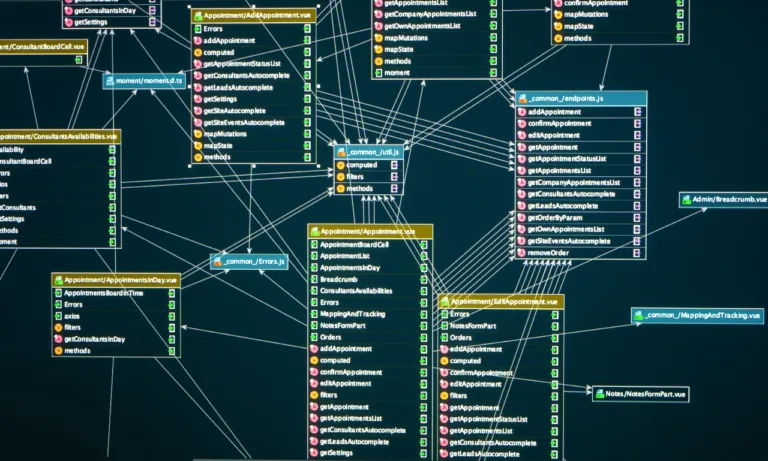Phone:
(+65)8319-0742
In the realm of educational psychology, the Zone of Proximal Development stands as a seminal concept introduced by Lev Vygotsky, offering a compelling blueprint for unlocking students’ learning potential. At its core, this instructional approach identifies a fertile groundâa zoneâwhere learners, with the aid of strategic support known as scaffolding, can reach new heights of cognitive development. It’s this delicate balance between challenge and support that shapes a learnerâs pathway towards intellectual autonomy.
The cultivation of knowledge within this framework is not an isolated venture; rather, it thrives upon the pillars of social interaction. Beneath the guidance of a knowledgeable other, students traverse the bridge stretching from what they can do independently to what they can achieve collaborativelyâtherein lies the essence of Vygotsky’s influential educational theory. Teachers adept in harnessing the power of the Zone of Proximal Development shape dynamic thinkers prepared to explore the spectrum of their academic possibilities.
Key Takeaways
- The Zone of Proximal Development encapsulates the area where a learner can thrive with guided assistance.
- Lev Vygotsky’s educational theory underpins the importance of scaffolding for optimal cognitive development.
- Social interactions play a pivotal role in advancing a learner’s journey through the ZPD.
- A focus on the ZPD in instructional design fosters learning that is both challenging and accessible.
- Educational Psychology leverages the ZPD to create learning experiences that cater to the learner’s growth edge.
Understanding the Fundamentals of Zone of Proximal Development
In the realm of Educational Psychology, the Zone of Proximal Development is a crucial concept that serves as a lynchpin for understanding how learners advance in knowledge and skill. It is a term deeply associated with Lev Vygotsky, whose scholarly work provides the underpinning of current educational strategies and theories.
Origins and Contributions of Lev Vygotsky
Lev Vygotsky’s contributions to educational psychology illuminate the path of a learner’s Cognitive Development. By framing the concept of the Zone of Proximal Development, Vygotsky emphasized the intrinsic role of Social Interaction in learning, drastically shifting the traditional paradigms of early 20th-century education.
Defining Zone of Proximal Development
The Zone of Proximal Development defines not just what learners can achieve on their own, but more importantly, their Learning Potential when supported by someone more adept in a subject. It acknowledges that what we can do collaboratively today, we can do independently tomorrow.
The Critical Role of Scaffolding in ZPD
Scaffolding is the educational technique of providing tailored assistance to support the learnerâs progression through the Zone of Proximal Development. It is progressive in nature, meant to diminish as the learner’s proficiency grows, ultimately fostering independence in the realm of cognitive functions.
| Scaffolding Technique | Purpose | Outcome |
|---|---|---|
| Question Prompting | Encourages critical thinking | Advances learner’s problem-solving skills |
| Modeling or Demonstrations | Provides clear examples for imitation | Enhances practical skill acquisition |
| Feedback and Adjustments | Offers real-time coaching and correction | Refines understanding and execution |
| Collaborative Learning | Promotes peer interaction and support | Expands social and intellectual bounds |
Through deliberate application of the Zone of Proximal Development and Scaffolding strategies, educators aim to catapult students beyond their current level of understanding to untapped areas of Cognitive Development, utilizing not just academic exercises but also essential Social Interaction.
Applying ZPD Concepts in Educational Psychology

The Zone of Proximal Development (ZPD), as articulated by Vygotsky, plays a pivotal role in Educational Theory and has been widely applied within the parameters of Educational Psychology. This concept considers the dynamic range between a learner’s current knowledge and their potential cognitive development, which they could achieve through guidance and collaboration. Instructors and educational psychologists utilize this framework to devise interventions that offer a scaffold to knowledge construction, adhering to the unique learning curves of each individual.
- Differentiated Learning: Tailoring instruction to meet individual student needs.
- Collaborative Tasks: Encouraging peer interaction to facilitate learning within the ZPD.
- Inquiry-Based Learning: Igniting curiosity and promoting analytical skills development.
- Authentic Experiences: Providing real-world contexts to enhance the learning experience.
Each strategy drives learner engagement, spurs critical inquiry, and nourishes confidence, steering students towards the acquisition of capabilities that enable self-regulation and independent learning. ZPD-focused activities inspire learners to foster a voice, think critically, and engage in active problem-solving, which enhances both Cognitive Development and scholastic performance.
| Educational Strategy | Role of Scaffolding | Impact on Cognitive Development |
|---|---|---|
| Peer Tutoring | Peers provide guidance within the learner’s ZPD, retracting support as competence grows. | Facilitates the application of social interactions in cognitive processes. |
| Problem-Based Learning | Challenges are initially guided and gradually lead to independent resolution. | Encourages self-directed learning and complex cognitive function. |
| Role-Playing | Structured scenarios enable learners to explore concepts with scaffolding from the context. | Advances empathy and understanding of various perspectives. |
The incorporation of Vygotsky’s ZPD into educational settings has revolutionized the way that learning processes are perceived and enacted. Through the practice of scaffolding, educational professionals not only transmit knowledge but also build structures that encourage the fortified advancement of learners’ intellects within their ZPD. As such, this embodiment of Vygotsky’s vision highlights the ongoing convergence of theory and practice in the quest to optimize educational outcomes.
Analysis of Cognitive Development Through Social Interaction

Lev Vygotsky’s insights into the Zone of Proximal Development have elucidated how social interaction plays a formidable role in cognitive development. His theory holds that educational psychology must address the social context where learning occurs, facilitating a more natural integration of knowledge through interaction and collaboration. As learners engage with one another, they actively construct meaning, moving beyond the passive absorption of information to a more dynamic and interconnected model of intellectual growth.
The practical implications of Vygotsky’s theory on social interaction are particularly vivid within collaborative classroom settings. Activities such as group discussions, peer-to-peer teaching, and co-creating projects constitute a significant aspect of the Zone of Proximal Development, stimulating students to stretch their cognitive capabilities and promote internalization of concepts.
- Group projects foster collaboration and collective problem-solving.
- Discussions and debates enhance critical thinking and articulation of ideas.
- Peer feedback enables learners to view their work from diverse perspectives, revising and refining understanding.
The active engagement in these forms of social interaction not only benefits the development of specific competencies but also underpins the overall adaptive growth of students within their personal Zone of Proximal Development. Ultimately, Vygotsky’s work has forever changed the way educational psychologists appreciate the symbiotic relationship between social dynamics and cognitive advancement in learners.
Zone of Proximal Development: Maximizing Learning Potential
The concept of the Zone of Proximal Development (ZPD), originally developed by Lev Vygotsky, is more than a theoretical framework within educational theory; it’s a dynamic tool that educators use to stretch the learning potential of their students to its fullest. When teachers design dynamic learning environments that both support and challenge, they equip learners to move beyond current competencies towards the acquisition of new, more advanced skills and understanding.
Dynamic Learning Environments
Creating a dynamic learning environment is akin to constructing a metaphorical playground for the mind. Here, through constructivism and scaffolding, learners can explore, experiment, and engage with content in ways that resonate with their innate curiosity and drive for growth. Such environments are ripe with opportunities for discussion, inquiry-based projects, and collaborative problem-solving, encouraging active learner engagement and enabling students to confidently stride into the zone just beyond their independent grasp, facilitating deep cognitive and skill development.
Constructivism and the Role of Active Learner Engagement
Under the tenets of constructivism, knowledge isn’t handed down but built up, piece by piece, through experiences and interactions. Vygotsky’s ZPD complements this approach by positioning the learner at the heart of the educational experience. In these spaces, students aren’t passive recipients of information but are actively constructing their understanding through dialogue, application, and reflection within their ZPD. This reality ensures that learning is not merely an accumulation of facts but a transformative process where each new piece of knowledge is a stepping stone toward greater independent learning and critical thinking.
Maximizing the effectiveness of ZPD requires careful attention to the support mechanisms provided to learners. Scaffolding is essential here, acting as a temporary but adjustable framework from which students can reach higher, tackling complex concepts and developing sophisticated competencies as they grow. By tailoring challenges that align with individual learning pathways within the ZPD, educators forge learners who are resilient, adaptable, and prepared to thrive in an ever-evolving world of knowledge and discovery.
FAQ
What is the Zone of Proximal Development (ZPD)?
The Zone of Proximal Development is a core concept in educational psychology that represents the difference between what a learner can do without help and what they can achieve with guidance and encouragement from a skilled partner. It refers to the optimal learning zone that fosters the maximum growth of a learner’s capabilities.
Who introduced the Zone of Proximal Development?
Lev Vygotsky, a prominent Soviet psychologist and educational theorist, introduced the concept of the Zone of Proximal Development in the early 20th century as part of his broader work on cognitive development.
How does scaffolding relate to the ZPD?
Scaffolding is an instructional technique that involves providing support to learners as they develop new skills or knowledge. Within the ZPD, scaffolding refers to the temporary and adjustable assistance educators or peers provide to students, allowing them to complete tasks they would not be able to achieve independently. This support is gradually removed as the learner becomes more capable.
Why is social interaction important for cognitive development in the ZPD?
Vygotsky emphasized that cognitive development is deeply rooted in social interactions. In the context of the ZPD, social interaction provides learners the opportunity to engage with more knowledgeable individuals, allowing them to expand their understanding and acquire new cognitive strategies through collaborative dialogue and shared activities.
What is the role of educational psychology in applying ZPD concepts?
Educational psychology applies ZPD concepts to inform teaching strategies and learning activities that prompt cognitive development. It leverages insights from ZPD to design instructional methods that provide the right balance of challenge and support for learners, facilitating their advancement towards greater independence and knowledge mastery.
Can you explain constructivism in relation to ZPD?
Constructivism is an educational philosophy that posits learners construct their understanding and knowledge of the world through experiences and reflecting on those experiences. Within the context of ZPD, constructivism aligns with Vygotsky’s ideas that learning is a socially mediated process where students actively engage in their learning environments, often with the support of teachers or peers, to understand concepts that are just within their reach.
What constitutes a dynamic learning environment in the context of ZPD?
A dynamic learning environment within the ZPD is one that continuously adapts to the evolving needs of learners. It provides appropriate challenges, encourages exploration, fosters social interaction, and incorporates scaffolding techniques to support students as they progress in their learning journey. Such environments favor active participation and engagement, promoting deep and meaningful learning experiences.
How is learning potential maximized within the Zone of Proximal Development?
Learning potential is maximized within the ZPD by presenting learners with tasks that stretch their current capabilities but are achievable with the assistance of a knowledgeable guide. Through scaffolding, educators support learners to develop higher-level thinking and problem-solving skills, which gradually leads learners to internalize new knowledge and become self-sufficient in their learning process.

Enhance Skills with Guided Learning Techniques
The realm of education is continuously evolving, presenting new challenges and opportunities for skill…

Empowering Learning with Formative Support in Education
As the landscape of education continuously evolves, the role of Formative Support in Education becomes…

Unlocking Potential with Differentiated Instruction
At the heart of a modern and dynamic educational framework lies Differentiated Instruction, a scaffold…

Effective Scaffolding Strategies in Learning
With the educational landscape continually shifting towards more dynamic and personalized learning experiences,…

Enhancing Learning with Cognitive Support in Classrooms
The pursuit of academic achievement in today’s educational landscape is continually evolving, as…
No posts found

















